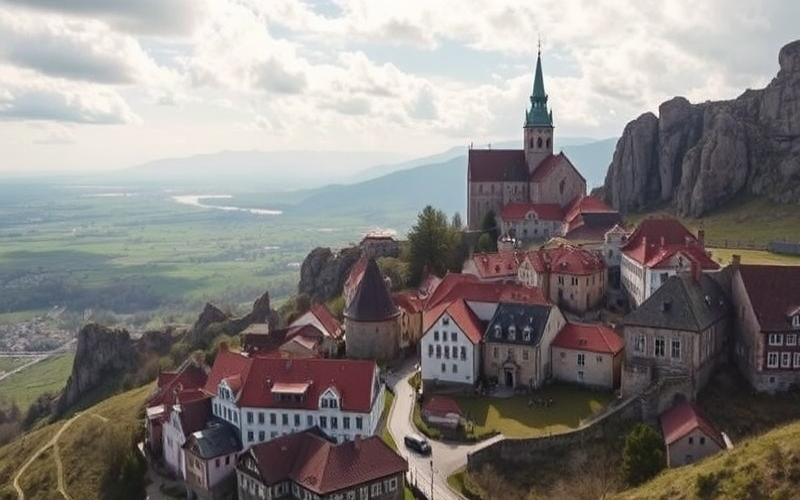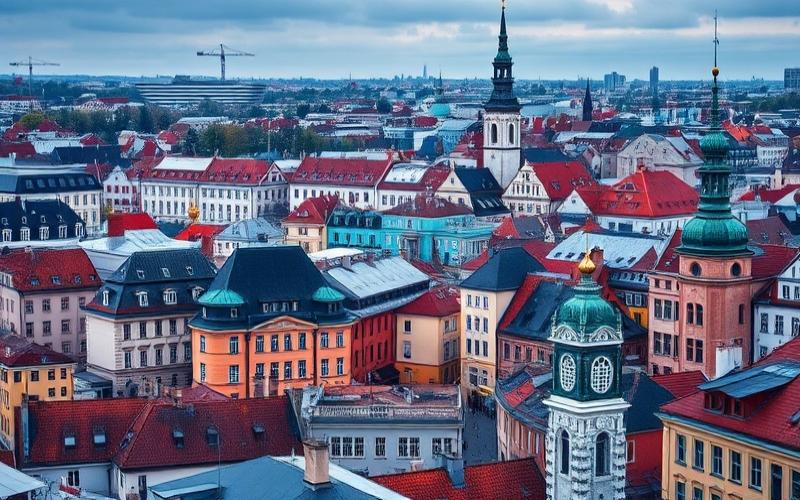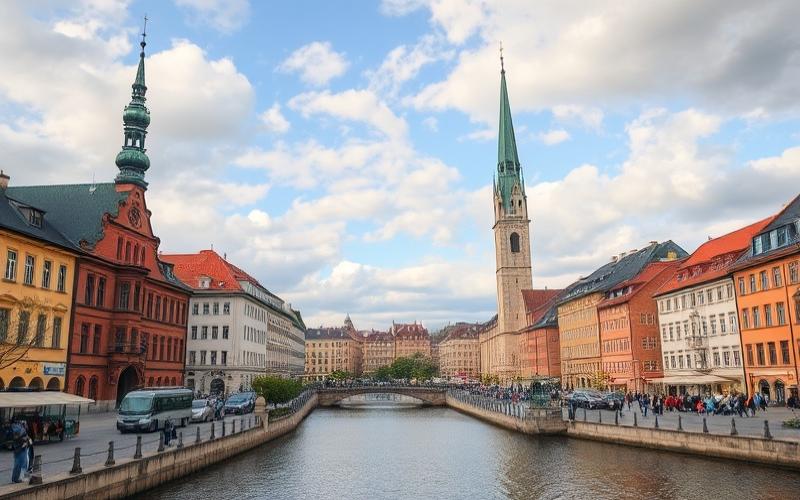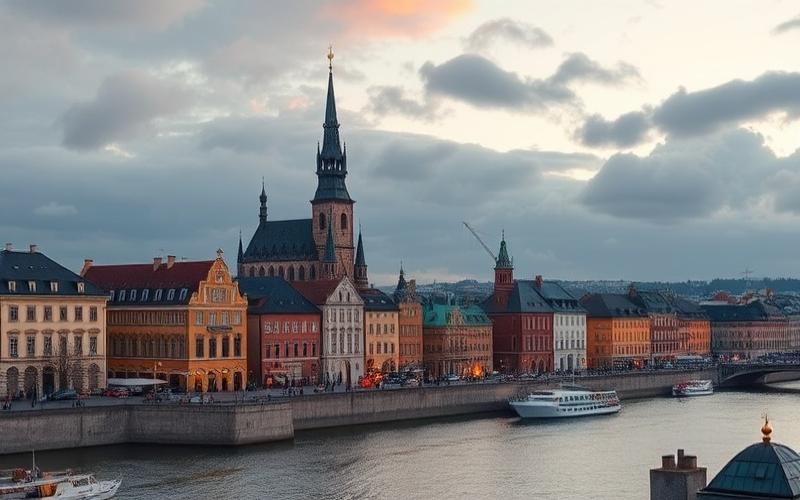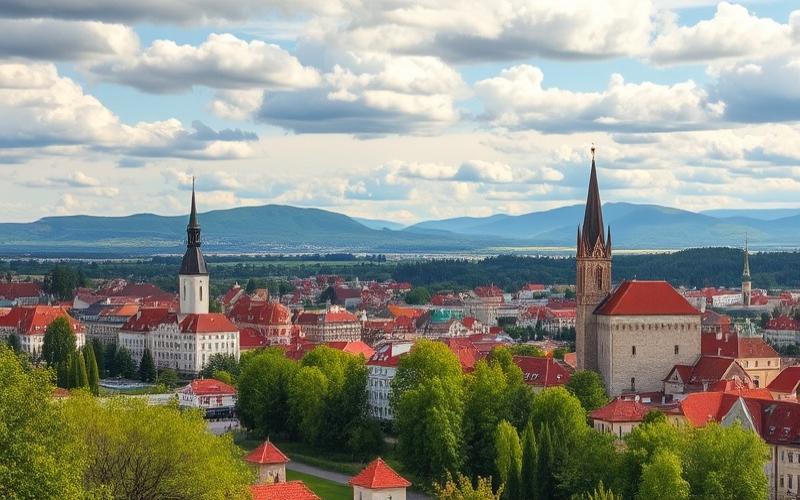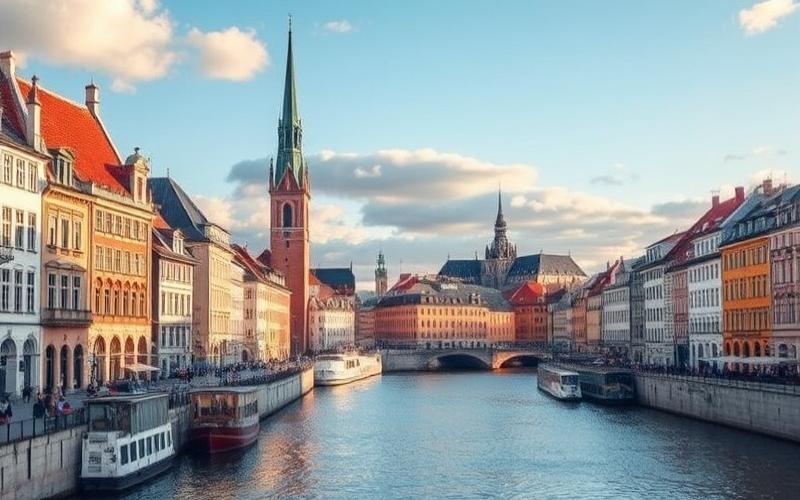
 Published on and written by Cyril Jarnias
Published on and written by Cyril Jarnias
Estonia, this small Baltic country nestled along the Baltic Sea, is attracting more and more expatriates drawn by its quality of life, economic dynamism, and cutting-edge digital environment. Whether you’re considering moving there for work, studies, or simply to explore a new culture, it’s essential to understand the administrative procedures required. This article will guide you through the key steps for a successful relocation to Estonia, from visa formalities to the nuances of finding housing.
Opening Estonia’s Doors: Obtaining the Precious Key
The first step to settling in Estonia is obtaining the appropriate visa. As a member of the European Union and the Schengen Area, Estonia applies different rules depending on your country of origin.
For EU/EEA and Swiss citizens: You benefit from freedom of movement and can stay in Estonia for up to 3 months without special formalities. Beyond that, you must register your residence with local authorities.
For non-EU/EEA nationals: You’ll need to obtain a visa suited to your situation. Estonia offers several types of visas, including:
- Work visa
- Student visa
- Entrepreneur visa
- Family reunification visa
The visa application is generally made at the Estonian embassy or consulate in your country of residence. You’ll need to provide various documents, such as:
- A valid passport
- ID photos
- Proof of sufficient financial resources
- Health insurance
- Specific documents according to visa type (employment contract, university admission, etc.)
E-Residency: An Estonian Specialty Estonia also offers a unique program worldwide: e-Residency. While not technically a visa, this status allows entrepreneurs worldwide to create and manage an online business in Estonia, providing access to the European market.
Good to know:
The visa application process can take several weeks, or even months. It’s therefore recommended to start the procedures well in advance. Estonian authorities are known for their efficiency, but it’s better to allow extra time to avoid unnecessary stress.
Finding Your Cozy Nest: The Quest for Perfect Housing
Once you have your visa, the next step is finding housing. The Estonian real estate market offers a variety of options, from modern downtown apartments to traditional suburban houses.
Renting: Renting is often the preferred solution for expatriates, at least initially. Here are some points to consider:
- Websites like kv.ee, city24.ee, or kinnisvara24.ee are valuable resources for finding listings.
- Real estate agencies can facilitate your search, especially if you don’t speak Estonian.
- Leases are typically for one year, renewable.
- A security deposit equivalent to 1-2 months’ rent is often required.
Buying: If you’re considering a long-term stay, purchasing property can be an interesting option. Estonia doesn’t impose special restrictions on foreigners buying properties.
Shared Housing: For students or young professionals, shared housing is an economical and social alternative. Dedicated Facebook groups and sites like roomster.com can help you find roommates.
Good to know:
Tallinn, the capital, concentrates most professional opportunities and offers a wide choice of housing. However, cities like Tartu (university town) or Pärnu (seaside resort) can offer a quieter living environment and more affordable rents.
Staying Within the Lines: Renewing Your Right of Residence
Renewing your residence permit or visa is a crucial step to legally extend your stay in Estonia.
For EU/EEA citizens: If you’ve resided in Estonia for more than 5 years, you can apply for permanent right of residence. The procedure is relatively simple and done through the Police and Border Guard Board.
For non-EU/EEA nationals: Renewal depends on the initial permit type:
- Work permits can generally be renewed as long as you maintain your employment.
- Study permits are renewable for the duration of your studies.
- Entrepreneur permits can be renewed if your business remains active and viable.
In all cases, it’s crucial to start renewal procedures at least 2 months before your current permit expires.
Good to know:
Estonia has implemented a highly developed e-services system. Many administrative procedures, including renewing certain permits, can be done online via the eesti.ee portal. It’s a significant time-saver!
Integrating into Estonian Society: Essential Procedures
To live peacefully in Estonia, certain administrative procedures are essential:
1. Registration at the town hall: Within 30 days of your arrival, you must register with the town hall of your place of residence. This procedure will allow you to obtain your Estonian personal identification number, essential for many procedures.
2. The electronic ID card: Estonia is at the forefront of digital technology, and the electronic ID card is at the heart of this system. It will allow you to access many online services, sign documents electronically, and even vote in local elections (for permanent residents).
3. Health insurance: If you work in Estonia, you’ll be automatically covered by national health insurance. Otherwise, you’ll need to purchase private insurance.
4. Opening a bank account: Having an Estonian bank account will greatly facilitate your daily life. Banks like Swedbank, SEB, or LHV are among the most popular.
5. Language learning: Although not mandatory, learning Estonian is highly recommended for better integration. Free courses are often offered to newcomers.
Good to know:
Estonia has established an integration program for newcomers, including Estonian language and culture courses. Inquire with local authorities to benefit from it.
Living in Estonia involves respecting certain laws and regulations specific to foreigners:
Labor law: Foreigners benefit from the same rights as Estonians regarding work. However, some positions in public service may be reserved for Estonian citizens.
Taxation: Estonia applies a flat income tax rate of 20%. Tax residents are taxed on their worldwide income, while non-residents are only taxed on their Estonian-source income.
Real estate acquisition: There are no major restrictions for foreigners wishing to buy real estate in Estonia. However, purchasing agricultural or forest land may be subject to certain conditions.
Family reunification: Permanent residents and holders of certain visa types can bring their family to Estonia under certain conditions.
Naturalization: After 8 years of residence in Estonia, including 5 years of permanent residence, you can apply for Estonian citizenship. Proficiency in the Estonian language is one of the main criteria.
Good to know:
Estonia is renowned for its administrative transparency and fight against corruption. Laws are generally applied fairly, without discrimination against foreigners.
Moving to Estonia represents an exciting adventure, blending tradition and modernity in a pleasant living environment. Although administrative procedures may seem numerous, they’re generally well-organized and increasingly digitized. The open-mindedness of Estonians and their proficiency in English greatly facilitate expatriate integration.
Remember that each situation is unique. It’s always recommended to verify the most recent information with Estonian authorities or consult an immigration expert for personalized advice.
Disclaimer: The information provided on this website is for informational purposes only and does not constitute financial, legal, or professional advice. We encourage you to consult qualified experts before making any investment, real estate, or expatriation decisions. Although we strive to maintain up-to-date and accurate information, we do not guarantee the completeness, accuracy, or timeliness of the proposed content. As investment and expatriation involve risks, we disclaim any liability for potential losses or damages arising from the use of this site. Your use of this site confirms your acceptance of these terms and your understanding of the associated risks.

